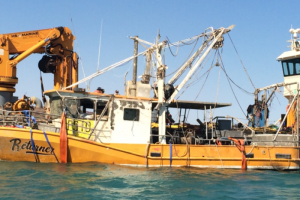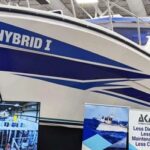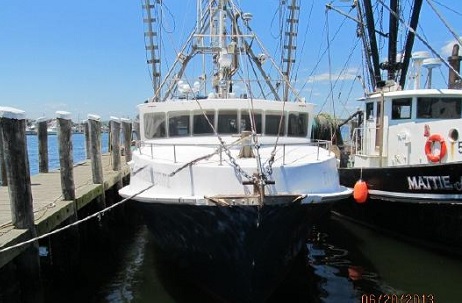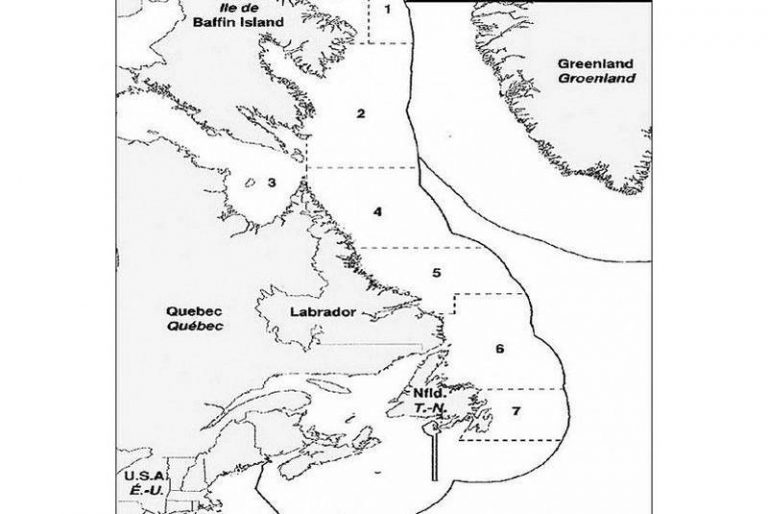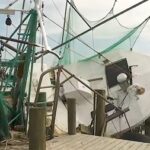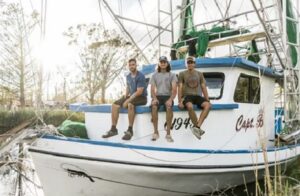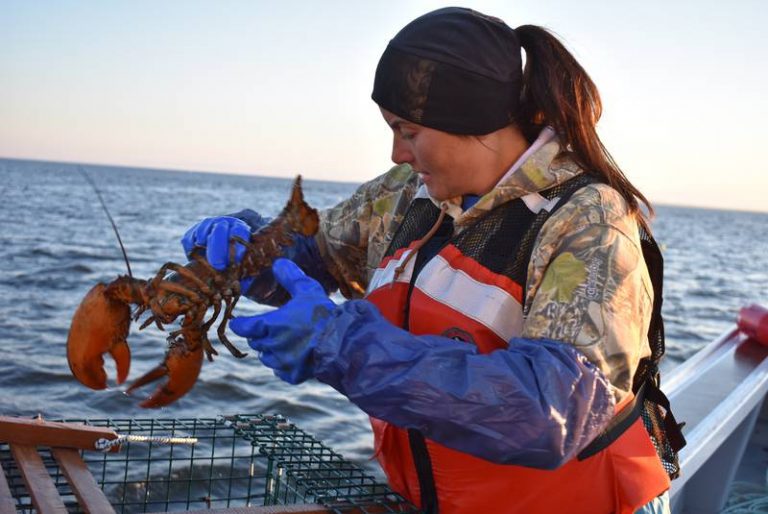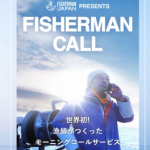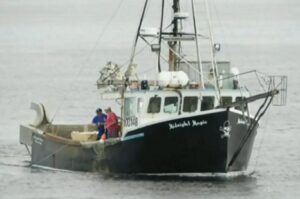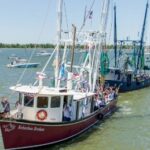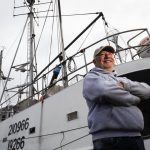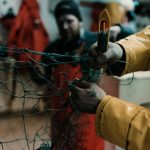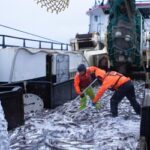Tag Archives: University of Massachusetts Dartmouth
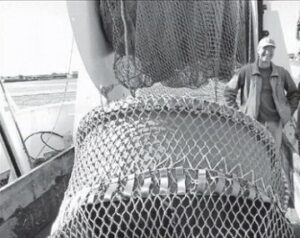
After many years, New England cod seems to be rebounding from overfishing
Atlantic cod, a fish that was foundational to New England’s economy, is being caught at historically low levels. But a research scientist says cod is in the early stages of a comeback. Before Raymond Lees goes fishing, he stops by Reidar’s Trawl Gear in New Bedford, Mass., where he buys custom nets that help him avoid certain types of fish. For commercial fishermen like Lees, cod is known as a choke species, meaning fishermen catch so much of it by accident, they sometimes hit their quota and have to stop fishing for what they really want. But new research from Kevin Stokesbury, a professor of fishery science at the University of Massachusetts Dartmouth, is challenging that claim. Audio report, >click to listen/read< 15:30
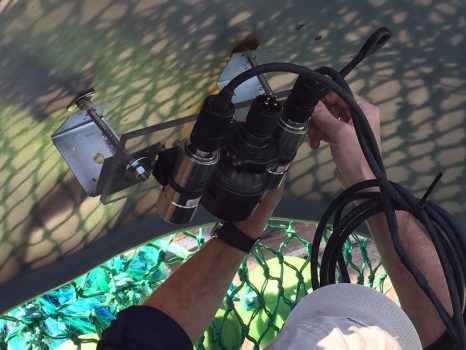
Live Cam May Show True Status of Atlantic Cod Fishery
Atlantic cod, New England’s most iconic fish, has been reported at historic lows for years, but fishermen hope a new video monitoring technique will prove there are more of the fish than federal surveyors believe. Ronnie Borjeson, who has been fishing for more than 40 years, says the federal surveys don’t match up with what fishermen are seeing. “I don’t care if you’re a gillnetter, a hook and line guy, a trawl guy,” he said, “there’s codfish everywhere up there. Everywhere. You can’t get away from them.” Borjeson helped test a video rig designed by researchers at the University of Massachusetts Dartmouth that allows them to record fish underwater and count them on the video later. With this rig, scientists can sample a larger area in the same amount of time and hopefully improve federal estimates of how many cod are left. click here to read the story 16:26
Counting Fish – A film by Don Cuddy click here to watch
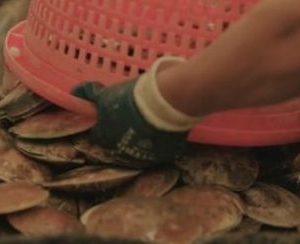
Sustaining Sea Scallops
SUSTAINING SEA SCALLOPS is a 35-minute documentary on the history and resurgence of the Atlantic sea scallop fishery, seen through the eyes of fishermen and researchers. In 1999, facing fisheries closures and bankruptcy, the scallop industry began funding a unique research program to minimize impacts on the marine environment. Fifteen years later, the Atlantic sea scallop is hailed as one of the most sustainable and lucrative fisheries in the world. From New Bedford, Massachusetts to Seaford, Virginia, fishermen and researchers tell a rare tale of renewal, offering cooperative research as a new model for sustaining healthy fisheries and fishing communities. A Connecticut fishermen describes tough times when trawl fishing went bust, and what changed once scallops started to rebound. Researchers at the Woods Hole Oceanographic Institution, the University of Massachusetts-Dartmouth, and Virginia Institute of Marine Science explain how gear innovations and better surveys ensure scallop future harvests while reducing needless harm to other species and habitat. At the heart of it all, a former NOAA Fisheries captain-turned-farmer works to increase fishermen’s access to these technologies through his non-profit research organization, the Coonamessett Farm Foundation. Watch the video here 09:52
UMass hires former head of failed Cape Cod Fish Shares business
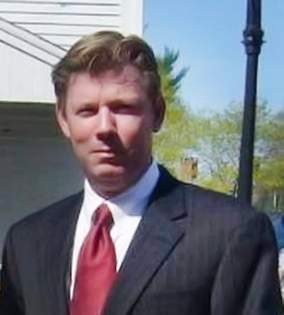 David Henchy has had some serious misfortune in recent years. His father died a year ago, his business failed and he declared bankruptcy, and now his wife is gravely ill. Perhaps the only bright spot was securing a job at the University of Massachusetts Dartmouth as an interim assistant dean in the graduate program at the Charlton College of Business this past September. But creditors who lost money when Henchy’s Cape Cod Fish Shares business collapsed in 2014, wonder how the university could hire someone who wrote off almost $574,000 of other people’s money. They are asking why he isn’t making attempts to pay them back now that his salary is $90,000 a year. Read the story here 13:02
David Henchy has had some serious misfortune in recent years. His father died a year ago, his business failed and he declared bankruptcy, and now his wife is gravely ill. Perhaps the only bright spot was securing a job at the University of Massachusetts Dartmouth as an interim assistant dean in the graduate program at the Charlton College of Business this past September. But creditors who lost money when Henchy’s Cape Cod Fish Shares business collapsed in 2014, wonder how the university could hire someone who wrote off almost $574,000 of other people’s money. They are asking why he isn’t making attempts to pay them back now that his salary is $90,000 a year. Read the story here 13:02
Groundfish Recovery and Revitalization Plan Press Release Tomorrow, June 17th at 11am Umass Dartmouth SMAST
 Dear Friends, We just obtained an announcement that tomorrow, June 17th at 11am UMass SMAST will host a press event on its “Groundfish Port Recovery and Revitalization Plan for the Port of New Bedford/Fairhaven.” The Order of Events are as follows: Welcome Remarks from Senator Montigny, Remarks from Mayor Mitchell, Summary of Findings Video of fish count capability, Comments/Questions. The University of Massachusetts Dartmouth, SMAST is located at 706 S Rodney French Blvd, New Bedford, MA 02744. 15:51
Dear Friends, We just obtained an announcement that tomorrow, June 17th at 11am UMass SMAST will host a press event on its “Groundfish Port Recovery and Revitalization Plan for the Port of New Bedford/Fairhaven.” The Order of Events are as follows: Welcome Remarks from Senator Montigny, Remarks from Mayor Mitchell, Summary of Findings Video of fish count capability, Comments/Questions. The University of Massachusetts Dartmouth, SMAST is located at 706 S Rodney French Blvd, New Bedford, MA 02744. 15:51
Glider Palooza 2013 – Diving ocean gliders capture valuable data
 “That boat is right where we want to be,” Rock said, glancing down at his GPS screen and pointing to where a big fish dragger, with long mantislike stabilizer arms spread wide, towed a net right through the area where the torpedo-shaped glider should be waiting for them. more@capecodonline 10:49
“That boat is right where we want to be,” Rock said, glancing down at his GPS screen and pointing to where a big fish dragger, with long mantislike stabilizer arms spread wide, towed a net right through the area where the torpedo-shaped glider should be waiting for them. more@capecodonline 10:49
A message from Dr. Rothschild regarding what he would do as NOAA administrator. Chris McCaffity
1. Follow the letter of the law(it seems almost unnecessary to say this, but the past administration would have done a better job if they had studied the laws that govern fisheries management). 2. Focus the scientific effort on critical issues and base management decisions on science. 3. Listen to the folks that are most effected by management decisions. 4. Promote cooperative research. 5. Be transparent and operate in the sunshine. 6. Provide incentives to employees to follow principals 7.Integrate elements of NOAA to be more cost effective(e.g. Sea Grant and NMFS).
Brian J. Rothschild Montgomery Charter Professor of Marine Science and Technology School for Marine Science and Technology University of Massachusetts Dartmouth 706 South Rodney French Boulevard New Bedford, MA 02744-1221 USA
Please sign the petition asking President Obama to appoint Dr. Rothschild as the new NOAA administrator. http://wh.gov/RucH

































